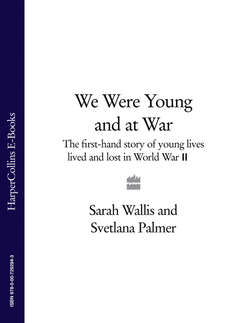Читать книгу We Were Young and at War: The first-hand story of young lives lived and lost in World War Two - Sarah Wallis - Страница 23
19 September 1939
ОглавлениеI went to school by tram in a clean uniform (I had to walk back, and will have to walk tomorrow, no money for the tram). There are fifteen girls and eighteen boys—from both gymnasia. We had three lessons, same as yesterday. Revision, mostly. We didn’t get any reports. There were a few new teachers, not many. We don’t know if we are going to be taught with the girls or separately, because it’s a squeeze. If separately, we’ll probably be the afternoon shift.
At five in the afternoon, I listened to Hitler on the radio. He spoke from ‘die befreite Stadt Danzig’ [German, ‘the liberated city of Danzig’, or Gdańsk in Polish] after an ovation from the crowd. That speech showed he doesn’t deserve his reputation as a great statesman. He threw himself around, screamed, insulted, pleaded, buttered people up, but most of all he lied and lied. He lied that Poland had started the war, he lied about the persecution of Germans in Poland (‘Barbaren!’). He lied about his good peaceful intentions, etc. Then he came out with a string of insults directed at the Polish authorities, Churchill, Cooper (Duff) and Eden. He talked about his desire for a deal with England and France. He talked about the injustice of the Treaty of Versailles, saying that Poland will never exist in the borders decided by the Treaty. He said that the English effort to overthrow the ruling German government would never succeed—the best proof we’ve heard that the English are seriously attempting such a thing. At the end, he talked about his good relations with Russia (?…) and the impossibility of a German-Russian conflict. He ended his speech with a few phrases, full of pathos, about Gdańsk.
Three days later, Edward once again passed through Łódź, this time on his way home.
